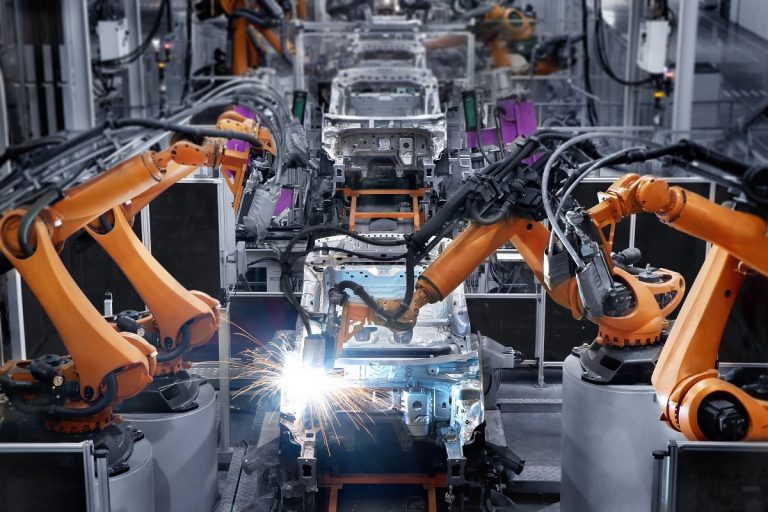- Manufacturing businesses today face challenges such as supply chain disruptions, talent shortages, and environmental regulations.
- Competition is increasing due to new technological entrants and the need for businesses to adapt quickly.
- Cyber threats are also an increasing concern for manufacturing businesses, with various methods, such as malware, used to steal information.
- To mitigate these threats, invest in workforce development, embrace eco-friendly practices, prioritize innovation, form strategic alliances, and employ cybersecurity service providers.
In today’s world, technology has revolutionized the manufacturing industry in many ways. With the incorporation of modern technology, businesses have been able to automate their processes, reducing their workload while maximizing production.
However, while technology has presented various opportunities for manufacturing businesses to grow, it has also introduced a new set of threats that needs to be addressed. In this blog, you will learn about the modern threats that manufacturing businesses face today.
Supply Chain Disruptions
Manufacturing businesses rely on external suppliers to provide the raw materials and components required to produce their products. When the supply chain is disrupted due to natural catastrophes, trade restrictions, or logistical challenges, businesses may find it hard to deliver their products as expected. To mitigate supply chain disruptions, businesses can partner with multiple suppliers or form strategic alliances that help ensure continuous and seamless supplies.
Talent Shortages

The manufacturing industry is facing the significant challenge of finding and retaining qualified technical and skilled workers. With the baby boomer generation aging and the younger generation showing less interest in manufacturing jobs, talent shortages are likely to worsen.
To attract and retain skilled employees, businesses can invest in workforce development, provide competitive salaries and benefits packages, create employee-friendly environments, and form partnerships with secondary schools, community colleges, or universities to prepare future employees.
Environmental Regulations
The increasing environmental awareness has spurred governments to put more stringent regulations on manufacturing processes that produce harmful emissions or discharge toxic waste.
Complying with these regulations could mean additional costs, which could have a significant impact on a business’s profitability. To manage environmental regulations, businesses should embrace eco-friendly practices, such as recycling and waste reduction, that help minimize the amount of toxic waste discharged.
Competition
With the growth of technology, it has become easier for new entrants to emerge in the manufacturing business. This increased competition puts established businesses at a disadvantage because they need to adapt to new operating models or technologies quickly.
To stay ahead of the competition, businesses must prioritize innovation and strive to create value-centered products that appeal to a broader market. Additionally, they can form strategic partnerships or alliances with other businesses to leverage each other’s strengths.
Cyber Threats

As manufacturing businesses continue to access and store critical company and client data digitally, they face an increasing cyber threat. Cybercriminals are always on the lookout to steal valuable information like product codes, plans, and financial information. Here are the most common methods they use to carry out cyber-attacks:
Malware
Malicious software or malware is designed to infect computers and disrupt their operations. Malware can also be used to spy on businesses and steal their confidential data. The most common types of malware are viruses, Trojans, and ransomware.
Phishing
Cybercriminals use phishing emails to steal confidential information from businesses. These emails often appear legitimate but contain malicious links that lead to malicious websites or download files containing malware.
SQL Injections
SQL injections are designed to exploit vulnerabilities in web applications by injecting malicious code into the application’s database. SQL injections can be used to delete, modify, or steal data from the application.
DDoS Attacks
Distributed Denial of Service (DDoS) attacks overwhelm a computer system with traffic, rendering it inaccessible or temporarily disabling it. DDoS attacks are typically used to disrupt a business’s operations or steal confidential data.
To avoid cyber threats, you should employ the help of a professional cybersecurity service provider. They can help you encrypt your data, manage your passwords, and monitor suspicious activities regularly. They can also provide you with resources to help educate your employees on cyber threats and how to prevent them.
The manufacturing industry is facing many modern threats that need to be addressed. From supply chain disruptions and talent shortages to environmental regulations and cyber threats, businesses must mitigate these challenges or risk losing potential profits.
Investing in workforce development, embracing eco-friendly practices, prioritizing innovation, forming strategic alliances with other companies, and employing a professional cybersecurity service provider can help you stay ahead of your competitors while ensuring compliance with applicable laws and regulations.
With the right strategies for tackling modern threats head-on, you can ensure sustained success for your manufacturing business today and into the future.

